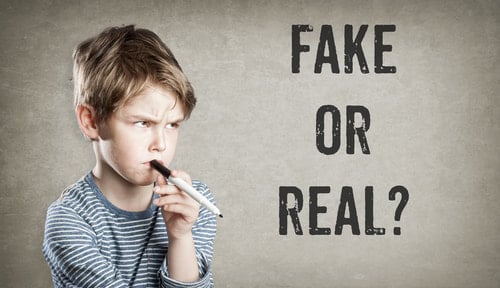|
Introduction
The First Sale Doctrine is a fundamental principle of intellectual property law that governs the rights of individuals and businesses who sell copyrighted goods. While the doctrine grants certain freedoms to sellers, it is essential for Amazon sellers to understand its scope, limitations, and how it can impact their business when accused of intellectual property infringement. In this article, we will explore the First Sale Doctrine, its relevance to Amazon sellers, and why it may not always provide a complete defense against such accusations. Understanding the First Sale Doctrine The First Sale Doctrine, also known as the "exhaustion doctrine," is a legal concept that allows the purchaser of a copyrighted or trademarked item to resell or distribute that particular item without the permission of the original rights holder. The doctrine is based on the idea that once the copyright owner has sold or authorized the sale of a specific copy of their work, their control over that particular copy is exhausted. The primary purpose of the First Sale Doctrine is to balance the rights of copyright owners with the interests of consumers and resellers. It enables a robust secondary market for used goods and promotes competition by preventing copyright holders from exercising unlimited control over the distribution and resale of their products. Impact of the First Sale Doctrine on Amazon Sellers Amazon has become a significant platform for online sellers, including individuals and businesses that engage in both new and used product sales. The First Sale Doctrine plays a crucial role in defining the rights of Amazon sellers when dealing with copyrighted or trademarked goods. Under the First Sale Doctrine, Amazon sellers can legally resell genuine products they have purchased, even if those products contain copyrighted or trademarked elements. This means that if an Amazon seller obtains genuine products from authorized distributors or resellers, they have the right to sell those items on the marketplace without obtaining additional permission from the copyright owner. However, it is important to note that the doctrine does not grant sellers the right to reproduce or manufacture copyrighted or trademarked goods. It only provides protection for the resale of genuine, lawfully acquired copies. Sellers must ensure that the products they offer for sale are authentic and obtained through legal channels to avoid infringing on intellectual property rights. Limitations of the First Sale Doctrine in Intellectual Property Cases While the First Sale Doctrine provides some protection to Amazon sellers, it is not an absolute defense against intellectual property infringement accusations. There are certain limitations and exceptions to consider:
Amazon sellers must exercise caution and due diligence to ensure compliance with intellectual property laws and protect themselves from accusations of infringement. Here are some best practices:
Comments are closed.
|
|
- Reviews
- Amazon News
-
Our Services
-
Amazon Appeals| Reinstate Account
>
- Amazon Appeal Inauthentic Item Suspension
- Amazon Appeal ODR Suspensions
- Amazon Related Account Appeals
- Appeal Amazon Verification Suspension
- Amazon Restricted Product Appeals
- KDP and ACX Termination Appeals
- Merch by Amazon Termination Appeals
- Amazon Drop Shipping Policy Appeals
- FBA Reimbursement Abuse Suspensions| Appeals
- Amazon Relay Suspension Appeals
- Amazon Safety Complaint Appeals
- Sales Velocity Suspension Appeals
- Amazon Sales Rank Manipulation Appeals
- Amazon Price Gouging/Fair Pricing Suspensions Appeals
- Amazon Review Manipulation Suspension Appeals
- Amazon Variation Abuse Appeals
- Amazon Forged or Manipulated Documentation Appeals
- Amazon Listing (ASIN) Removal? Reinstate Listing
- Amazon Seller Fraud or Illegal Activity Deactivation Appeals
- Amazon Account Hacked Suspension Appeal
- Amazon Funds Appeal
- How to Open Multiple Amazon Seller Accounts
- How to Settle Amazon TRO and Release Funds
- How to Settle Proposition 65 Cases and Release Funds
- Amazon Arbitration Lawyers Sue Amazon and Win
- Amazon Brand Registry Support
- Amazon Intellectual Property Lawyers >
- LLC Formation for Amazon Sellers
- Ebay Suspension Appeals
- Walmart Suspension Appeal
- Appeal Closed or Limited PayPal Account
- Etsy Suspension Appeal
- Amazon Hijacker Removal Service
- Twitter Account Suspension Appeals
- Temu Seller Suspension Appeal
- TikTok Seller Suspension Appeal
-
Amazon Appeals| Reinstate Account
>
- Free Consultation
- About Amazon Sellers Attorney
- Amazon Suspension Prevention with Free Appeals
- Top Rated Patent Attorney | Free Consultation
- Terms and Conditions
CONTACT DETAILS:AMZ Sellers Attorney®
9350 Wilshire Blvd. suite 203 Beverly Hills, CA 90212 (Mailing Address) نتحدث العربية
Türkçe konuşuyoruz Nous parlons français 🇫🇷 Мы говорим по русски 🇷🇺 Se habla español 🇪🇸 我們說中文 🇨🇳 |
SERVICES:Amazon Appeals
Inauthentic Item Suspensions Multiple/ Related Account Suspensions Amazon Verification Suspensions Forged or Manipulated Documentation Defending Buyer Complaints Plan to Prevent Suspension Intellectual Property (IP) Law Reinstating ASIN Fraud or Illegal Activity Hacked Account Listing Hijackers DMCA Lawyers Amazon Arbitration |
PAYMENTS:We accept payments from all major credit cards and also by ACH transfer through BlueSnap. Our purchase currency is US Dollar (USD). Payments made through our site are secure.

|
AS REPORTED IN:
|
|
|
|
|
|
Copyright © 2024 AMZ Sellers Attorney ® All Rights Reserved. Privacy Policy


 RSS Feed
RSS Feed